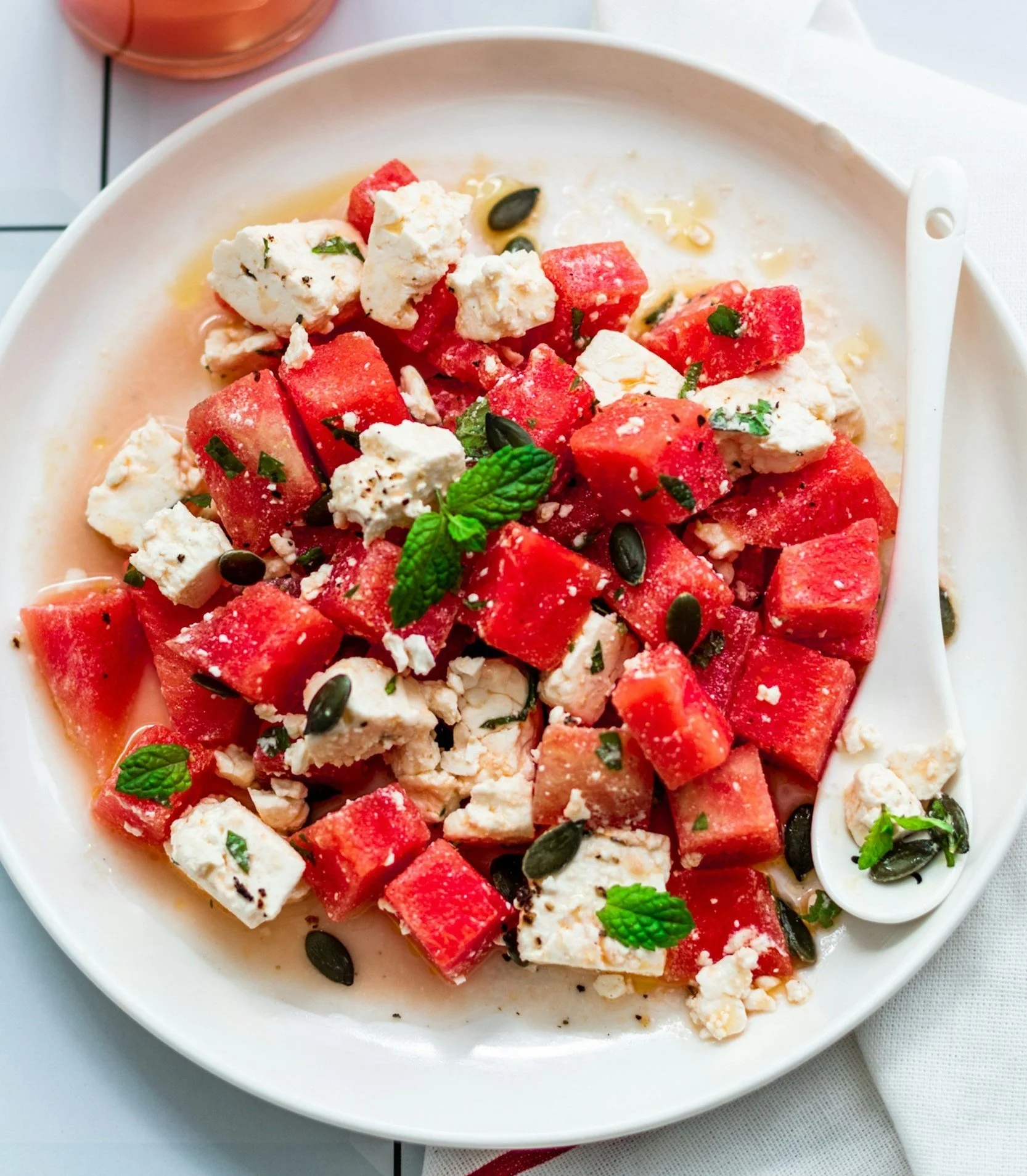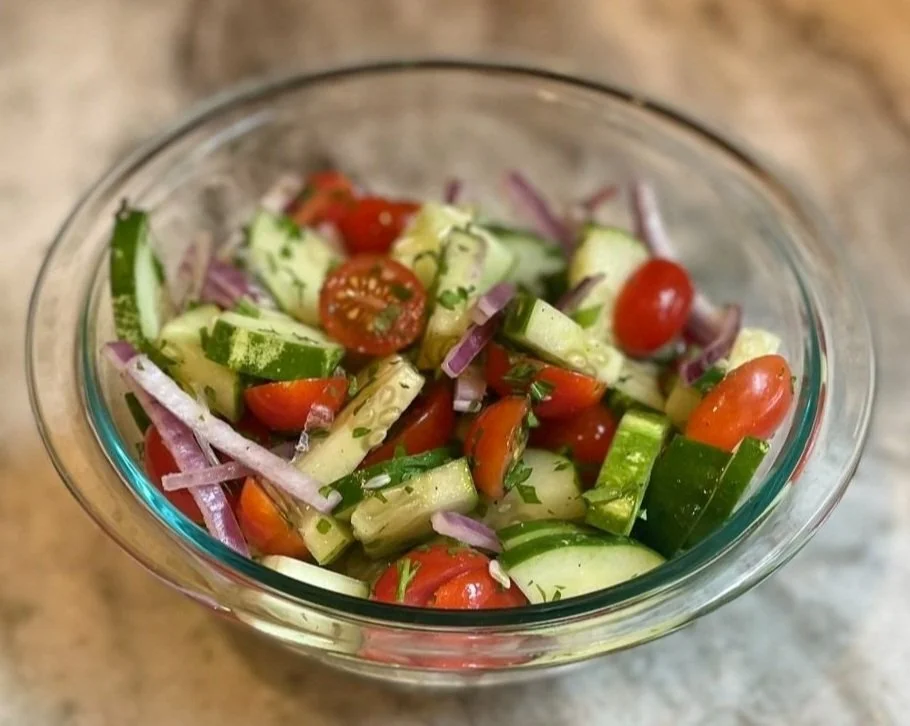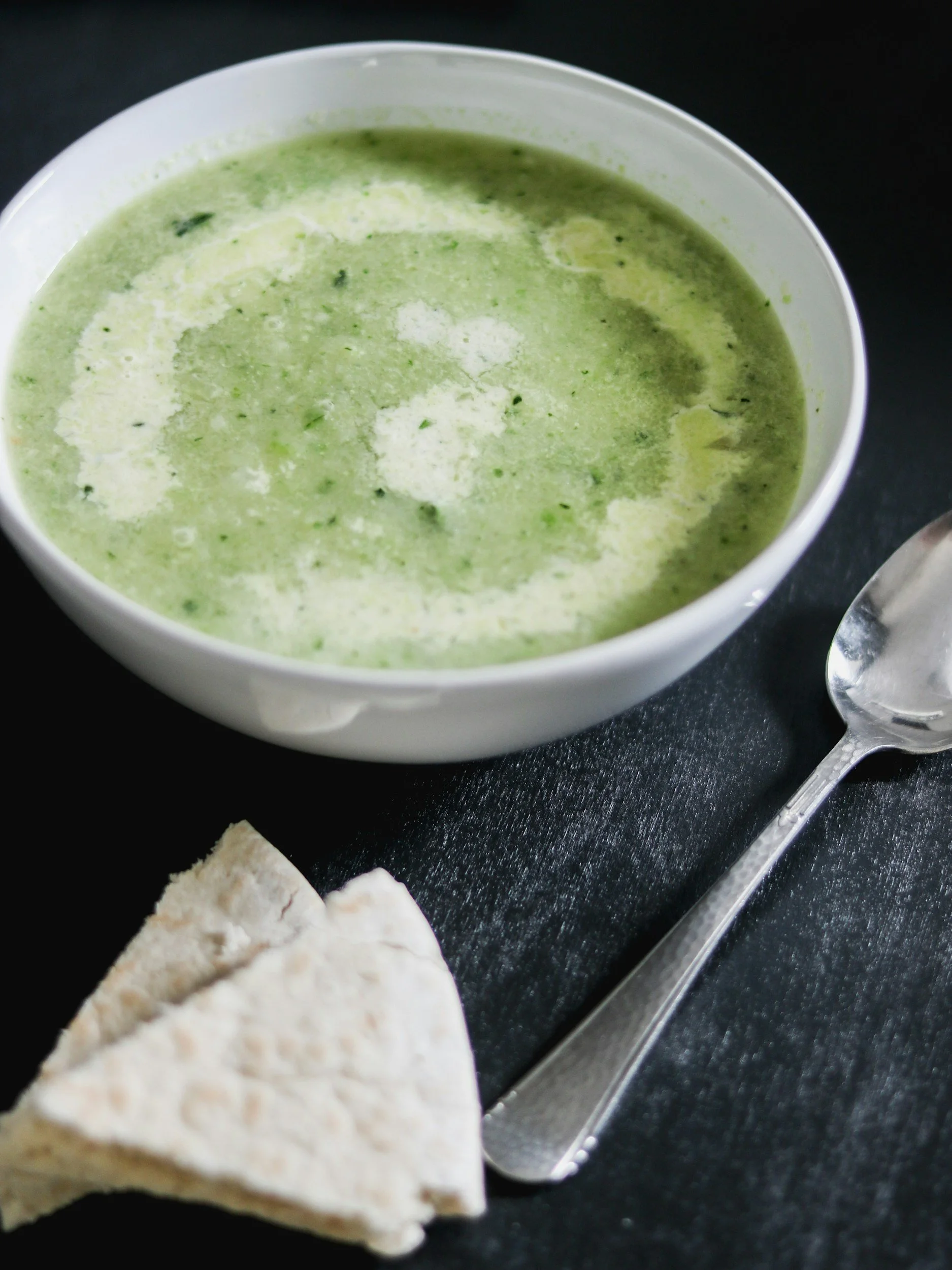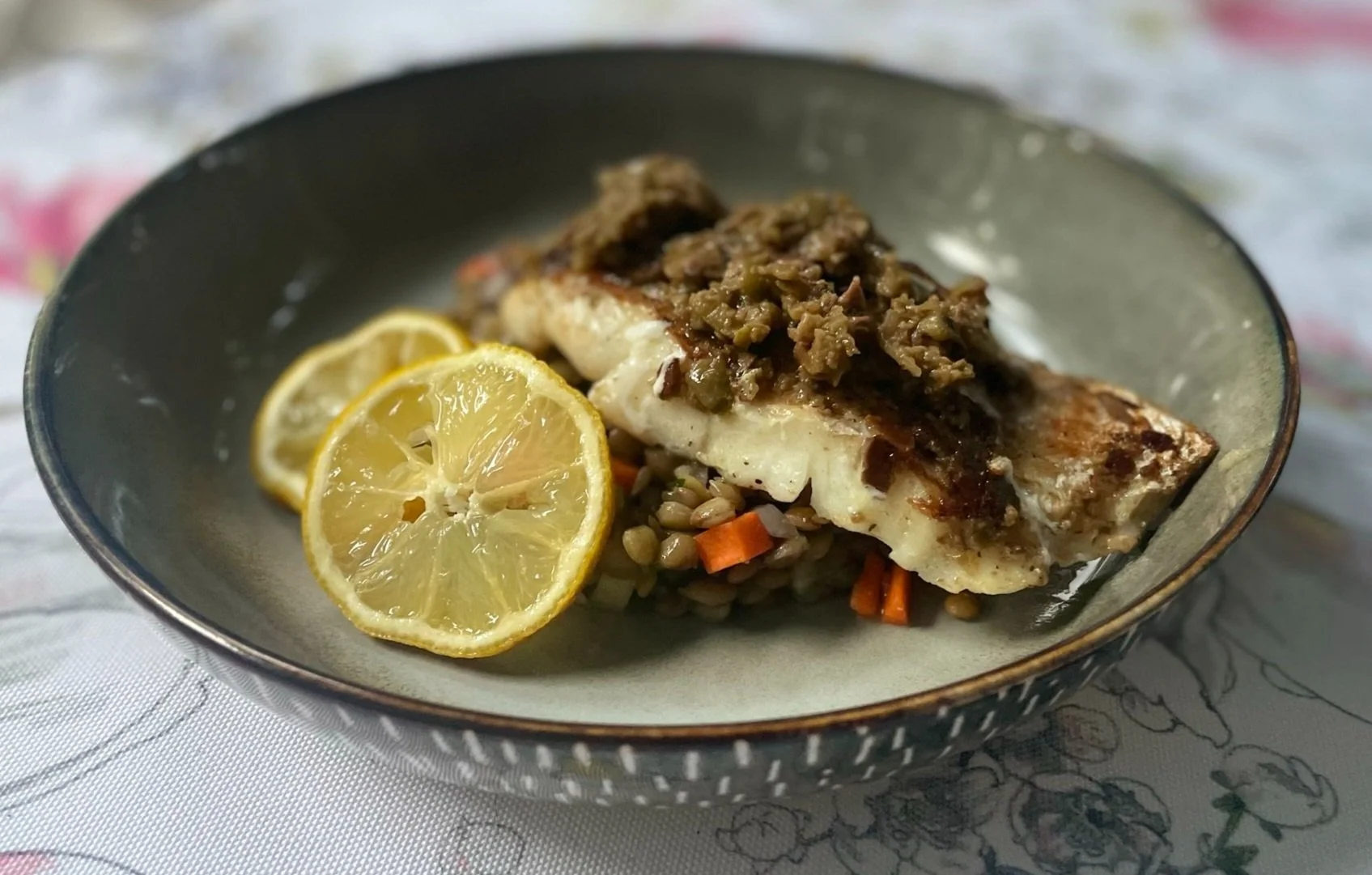Summer Foods That Keep You Hydrated & Energized
Now that Summer is in full swing, the outdoor temperature readings are above 90 degrees, the air is getting sticky, and weekend trips to the pool are on the radar. Whether you’re landlocked or coast-adjacent, there are still effective ways to stay cool, hydrated, and energized through the roaring temperatures, and powering through the summer activities ahead.
But what’s the secret? If you ask me, there’s nothing quite like Mediterranean food to help you beat the heat, and there’s actually science behind how this contributes to overall health.
Greek meals and many Mediterranean plates have long been celebrated for their ability to nourish the body while sitting lightly in the stomach, especially crucial in the summer heat. This isn’t just a coincidence; it’s the result of thousands of years of people experimenting with how to thrive in hot, sunny climates.
The Science Behind Summer Hydration: Why Your Body Needs More Than Just Water
As the temperatures rise, your body goes into overdrive to efficiently maintain its ideal and stable internal temperature of 98.6 degrees Fahrenheit. Sweating becomes your primary defense mechanism, which is your body’s built in air-conditioning system. However, what many people don’t realize is that although sweating effectively cools you down, it begins to deplete the body’s fluids and exacerbates nutrient loss.
Every drop of sweat carries away essential electrolytes, sodium, potassium, magnesium, and chloride, not just water, that your body depends on needs for nerve transmission, muscle function, and cellular communication. When this delicate balance is thrown out of whack, your body sends increasingly urgent warning signals. That pounding headache after a day at the beach, the dizzy spell when you stand up too quickly, the muscle cramps that seem to come out of nowhere (for me, it’s always my calves), or that frustrating brain fog and fatigue that makes simple tasks feel impossible.
This is where Mediterranean eating wisdom shines. While drinking water is certainly important, what you eat also plays an equally significant role in how well your body stays cool, balanced, and energized. The foods you choose can either support your body’s natural cooling mechanisms or work against them, leaving you feeling sluggish and overheated despite your best efforts.
Why Food-Based Hydration Trumps Drinks Alone
It’s helpful to think of hydrating foods as nature’s sports drinks, but infinitely better for you. Many fruits and vegetables are made up of 90% or more of water, but unlike plain water, they deliver a hydration package. This ‘package’ is composed of vitamins, minerals, fiber, and phytonutrients that your body can effectively put to use immediately.
Take cucumbers, for example. Approximately 96% water, it’s essentially a vegetable water bottle in simple terms. Cucumbers provide silica for healthy skin, vitamin K for bone health, and additional compounds that have natural anti-inflammatory properties, which are great for reducing stress that our bodies have been exposed to via the extreme heat and direct sun. Or, consider watermelon, quintessential summer food. This fruit is approximately 96% water, but packed with lycopene, an antioxidant that may actually help protect your skin from sun damage.
The Mediterranean diet, derived from the coastal regions, naturally emphasizes these kinds of water-rich, nutrient-dense foods. It’s a way of eating that evolved specifically to help people thrive in hot climates, incorporating not just hydrating fruits and vegetables, but also lean proteins and electrolyte-rich ingredients like olives that have been soaked in brine, feta cheese, and mineral-packed sea salt that work together to support the body’s complex hydration needs.
The Greek Philosophy Around Summer Eating
For thousands of years, Greeks have perfected the art of eating based on the seasons. This has led to developing an approach that goes beyond harboring individual ingredients to encompass how meals are timed, balanced, and enjoyed overall. Greeks don’t just survive the heat, but rather thrive in it, maintaining energy and vitality throughout the long days of summer.
This is the result of a holistic understanding of how food interacts with the climate and circadian rhythms. The Greek approach to summer eating is built around several key principles that modern science is only just now unraveling.
Embrace Water-Rich Produce: They’re Nutritional Powerhouses!
In Greek culture, you’ll find tables that are overflowing with fruits and vegetables, or Meze platters that work in unison to nourish your body when it needs it most.
Watermelon isn’t just a sweet afternoon snack. With a 92% water content, it’s packed with citrulline, an amino acid that may help improve blood flow and reduce muscle soreness after sand sports. Greeks often pair watermelon with feta and mint, as the saltiness and freshness compliment and balance the sweet and crisp watermelon itself, as well as providing overall hydration and electrolytes.
Cucumbers appear in most meals, from traditional horiatiki salad to cool and refreshing tzatziki. At 96% water, cucumbers are one of the most hydrating foods, and they contain compounds that have natural anti-inflammatory effects.
Tomatoes are about 94% water and packed with lycopene. Research suggests lycopene may help protect skin from UV damage. They form the backbone of many Greek dishes, from simple salads to chilled soups and casseroles.
Fresh figs, when in season, provide natural sugars for a quick energy boost while offering both potassium and magnesium. These are key electrolytes that support muscle and nerve function in the heat.
Prioritizing Light, Protein-Rich Foods That Don't Weigh You Down
I don’t know about you, but a rich, heavy meal does not sound appealing during peak heat hours and the anticipation of feeling sluggish and overheated. When our bodies are exposed to the sun and heat for prolonged periods of time, our body is working overtime to maintain homeostasis, and stress caused by the heat may upset your stomach. The key is to master the art of creating meals around light yet satisfying protein sources without overwhelming your digestive system.
Grilled seafood, particularly cod, sea bass, shrimp, sardines, and anchovies, provide high-quality protein and omega-3 fatty acids that support anti-inflammatory processes in the body. Grilling these proteins not only adds flavor without the addition of heavy sauces, but allows the fish itself to shine, all while being easy to digest.
Greek yogurt, possibly the most versatile and essential kitchen ingredient. Thick and slightly tangy, Greek yogurt serves as both a protein source and a probiotic that supports digestive health. Its cooling effect and creamy texture make it perfect for hot days, whether eaten on its own or used as a base for dips and sauces.
Chilled soups, like Avgolemono, cold cucumber, or even tomato soups, are light for the summer and provide both hydration and protein in an easily digestible form that actually helps cool your core body temperature.
Creating Flavor Combinations That Maximize Both Hydration and Energy
This is where Greek and Mediterranean cuisine become like art. Simple and humble ingredients are combined to create synergistic meals that go beyond the sum of their parts.
Briney feta paired with sweet watermelon and a squeeze of lemon isn't just delicious, but an electrolyte balanced snack, providing sodium for fluid retention, natural sugars for energy, and citrus for a slight addition of vitamin C and acid to balance and bring all the flavors together.
Vegetables lightly drizzled with olive oil paired with a refreshing dip is not just simple to put together, but the fats from the oil helps your body absorb fat-soluble vitamins like A, D, E, and K from those vegetables, making the entire meal more nutritionally dense.
Fresh herbs like mint, basil, and oregano aren't just for garnishing. They contain compounds that can have cooling effects on the body and provide additional antioxidants that help combat the oxidative stress that heat exposure can create.
Adapting Meal Timing to Work With, Not Against the Body’s Natural Circadian Rhythms
Perhaps most significant, Greek culture has long understood that when you eat is just as important as what you eat. A traditional approach involves:
Lighter fare during peak heat hours - Roughly 11 am to 4 pm, when your body is already working hard to stay cool and doesn't need the additional metabolic burden of digesting heavy meals.
More substantial, social meals during the cooler evening hours - When your body can better handle the metabolic work of digestion. When paired with the lively evening atmosphere, this makes meals more enjoyable when spending time with family and friends alike.
This isn’t to say that you need to be strict and rigid, it’s purely to optimize and support your body. This strategy ensures comfort and actually supports your body's natural circadian rhythms while helping maintain stable energy levels throughout the day, instead of the post-meal energy crashes that heavy midday meals can inevitably lead to.
Quintessential Mediterranean Summer Dishes
The science and philosophy behind Mediterranean summer eating is interesting, but realistically, I’m sure you’re ready to dive into meal ideas that will keep you cool and hydrated throughout the summer.
The recipes and meal ideas that follow are not only delicious, but help replenish lost fluids, provide steady energy, and support your body's natural cooling mechanisms, so you can enjoy summer activities, from lazy beach days to backyard barbecues. Each dish represents generations of wisdom about how to nourish your body and eat well in the summer heat. These are all approachable meals that fit into our modern, busy lives while honoring the timeless principles that showcase how Mediterranean eating can be seamlessly integrated into your summer routine.
Karpouzi me Feta - Watermelon with Feta and Mint
This iconic combination might seem unusual, but it’s a perfect example of the true balance of flavors. The contrast of sweet, crisp watermelon paired with salty, creamy feta creates a beautiful flavor profile that’s both refreshing and satisfying.
From a nutritional standpoint, this pairing is a powerhouse. Watermelon offers natural electrolytes and instant hydration. The natural sugars provide the body with quick energy without the crash that otherwise comes from processed sweets. Offering some protein and fat, feta slows down digestion which prevents a dramatic shift in blood sugar, and provides the body with sodium which helps the body retain fluids to counteract lost fluids through continued sweating.
And fresh mint isn’t just for garnish. It can be a functional ingredient that aids digestion and creates a cooling sensation. The menthol compounds in mint have been shown to activate cold-sensitive receptors in the mouth, thus tricking the brain into feeling cooler.
Although optional, just a drizzle of extra virgin olive oil adds healthy fats that help the body absorb the fat-soluble vitamins, while freshly crack black pepper provides a subtle ‘heat’ that paradoxically helps cool you down. The priest at my church always says, “if it’s a paradox, it’s orthodox.”
Tzatziki - Cucumber & Yogurt Dip
If there’s one dish that embodies the Greek approach to summer eating, it’s Tzatziki. This seemingly simple combination of cucumbers and yogurt is a nutritionally-packed dish.
Cucumbers are among the most water-rich vegetables to eat, at 96%. Not only are they essentially edible water, they contain silica which is a mineral that supports skin health, and additional compounds that have anti-inflammatory properties that may help your body cope with the stress caused by the heat.
Greek yogurt brings a plethora of benefits. The probiotics support digestive health, which can sometimes get disrupted by heat and changes in eating patterns. While the high-protein content helps maintain stable blood sugar levels, preventing energy crashes that may leave you feeling depleted in hot weather. The calcium works with other electrolytes to support proper muscle and nerve function.
Freshly minced garlic and herbs like dill not only enhance the flavors, but provide anti-inflammatory compounds that help support your body during hot, humid days. In particular, Garlic has been shown to even support heart and immune health in traditional medicine.
Serve tzatziki with fresh vegetables like carrots sticks, cucumber slices, celery, broccoli florets, and bell pepper strips for a light yet satisfying snack, or with whole wheat pita bread to provide sustained energy.
Horiatiki - Tomato & Cucumber Salad
What we often call "Greek salad" in America is actually horiatiki, which translates to "village salad." It’s a dish that comes together in minutes and combines hydration-rich ingredients in just one bowl.
The foundation starts with tomatoes and cucumbers, some of summer's most refreshing vegetables. Tomatoes are about 94% water and packed with lycopene, an antioxidant that research suggests may help protect your skin from UV damage. They're also rich in vitamin C, which supports your immune system.
Cucumbers bring in a whopping 96% water content along with silica for skin and joint health.
The combination of these two vegetables alone assists in helping you reach your daily hydration needs, and if you eat the skin, the added fiber helps slow the absorption of their natural sugars.
Add in red onions for quercetin, an antioxidant, bell peppers for vitamin C, and olives for healthy fats and additional electrolytes, and you have a complete nutritional package. The feta cheese is the added bow on top as it ties all the ingredients together with a touch of protein and sodium. A simple dressing composed of olive oil and lemon juice provides that finishing tough and brightness to the dish.
Soupa Angelou - Cucumber Soup
While it might be lesser known outside of Greece, chilled cucumber soup is a common summer staple that deserves more recognition. This soup is the epitome of a functional food, as every ingredient serves a purpose in helping your body stay cool and hydrated.
The base is simple with just cucumbers, Greek yogurt, and fresh herbs like dill or mint. The high water content of the cucumbers combined with the protein from the yogurt, create a meal that's both hydrating and satisfying. The chilled temperature naturally helps lower your core body temperature, making it an ideal midday meal that won't leave you feeling heavy or sluggish.
The beauty of this soup is its versatility. You can adjust the thickness by adding more yogurt for a richer texture or more cucumber for a lighter feel. Fresh herbs provide cooling compounds and additional nutrients, while a touch of lemon juice adds brightness and vitamin C.
Psari Scharas - Grilled Fish with Lemon
Greeks have perfected the art of preparing fish that complement hot weather rather than fighting against it. Grilled fish with lemon is a summer staple that provides substantial nutrition without the heaviness that can make you feel sluggish in the heat.
The key is in the preparation method. Grilling adds flavor without having to add heavy sauces or excessive fats that can make you feel weighed down. The fish itself is easy to digest, providing high-quality protein that helps maintain stable energy levels throughout the day.
The choice of fish matters too. Varieties like sea bass, cod, sardines, and anchovies are rich in omega-3 fatty acids, which have anti-inflammatory properties that can help your body cope with stress caused by the heat. These healthy fats also support brain function, helping you stay sharp.
A squeeze of fresh lemon adds a touch of acidity and brightness, while the citric acid can help enhance iron absorption from the fish, and the bright, tart taste has a psychologically cooling effect that makes the entire meal more refreshing.
Syka me Meli - Fresh Figs with Honey
Fresh figs are truly one of summer's most perfect foods, and they hold a special place in Greek cuisine. Like dates, they're nature's candy, packed with natural sugars that provide immediate energy. They also contain fiber that helps keep your blood sugar levels steady rather than spiking and crashing.
Though this isn’t without saying, figs boast a strong nutritional profile. They're rich in potassium, which is crucial for maintaining proper fluid balance and supporting muscle function. They also provide magnesium, another important electrolyte that can be lost through sweating.
A light drizzle of local honey enhances the natural sweetness, and adds additional nutritional benefits. Honey contains antioxidants that have been used traditionally to support immune function. This combination gives you immediate energy for the day ahead.
For a more balanced snack, pair figs with Greek yogurt, or with cottage cheese smeared on toast. The protein boost in the yogurt and cottage cheese, and the slight tang complement the fruit's natural sugars, creating a snack that's both refreshing and satiating.
Frappe, or Freddo - Iced Greek Coffee
Coffee culture in Greece is serious business, and they've mastered the art of making it work no matter the time of year. The traditional frappé or freddo cappuccino proves that you don't have to give up your caffeine fix just because the temperature rises.
Made with plenty of ice and a splash of milk, iced coffee provides a clean energy boost. The caffeine helps maintain alertness and can even enhance physical performance, which is helpful when you're active in the summer. Decaf coffee is a great alternative if you limit caffeine consumption.
The addition of milk, animal or plant sourced, provides protein and calcium, and ice contributes to your overall cooling strategy. The key is moderation, as too much caffeine can actually contribute to dehydration, but a well-made iced coffee and balanced diet can be a part of a healthy summer routine.
And then there's the family version. Like most family recipes, there are slight variations in dishes passed down through the generations, and iced coffee isn’t an exception. My family’s variation of "iced coffee" is more like a coffee-flavored milkshake. My yaya's version was legendary as it had vanilla ice cream mashed by hand in a large glass, mixed with milk and a touch of chocolate syrup, then topped with coffee and whipped cream. It was less about nutrition and more about love, but sometimes that's exactly what summer calls for, and who am I to turn that down!
Summer Eating Philosophies From the Greeks
The wisdom embedded in Greek summer eating goes beyond individual recipes and emphasizes a holistic approach to nourishment.
Eat During Cooler Hours: Structure your day around lighter fare when the heat is at its peak (typically 11 am to 4 pm) and save larger, more substantial meals for the cooler mornings and evenings when your body can better handle the metabolic work of digestion.
Contrast Temperatures: The art of temperature contrast is paramount. By pairing room temperature foods with chilled components. Think tzatziki with grilled vegetables, or cool watermelon with feta. This approach helps your body regulate temperature more effectively.
Balance Flavors: The classic combination of salty feta with sweet watermelon is a classic example of flavor balance that also happens to provide perfect electrolyte balance. Add a squeeze of lemon for tartness, and you've got all the desirable flavors covered.
Stay Social: Perhaps most importantly, make meals social occasions. Sharing food outdoors in shady areas, enjoying prepared dishes with lively conversations and gatherings, and eating mindfully with others all contribute to both physical and mental well-being.
Putting It All Together to Create a Mediterranean Summer Eating Strategy
The beauty of this approach is that it doesn't require dramatic changes or complicated meal planning. Instead, it's about making mindful shifts that align your eating habits with both the season and your body's needs. Focus on building meals around high-water fruits and vegetables, choose lighter protein sources, embrace fresh herbs and spices, and adjust meal timing.






